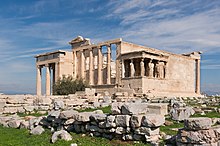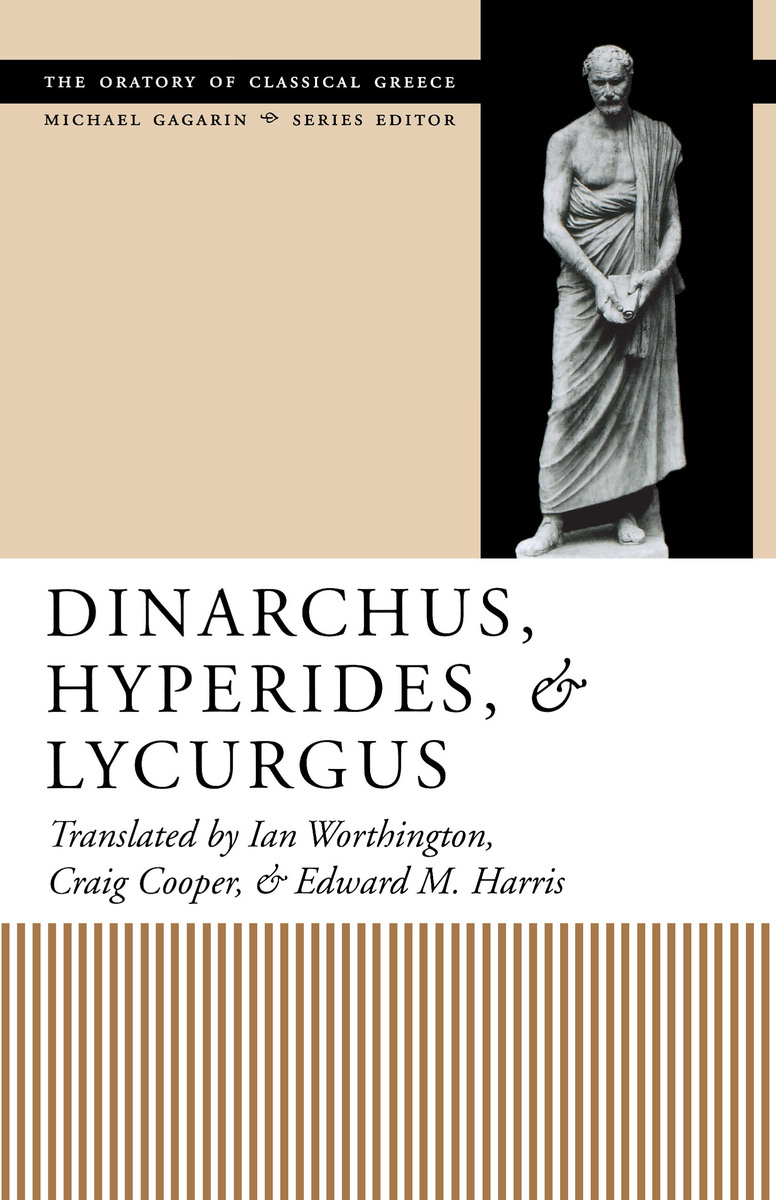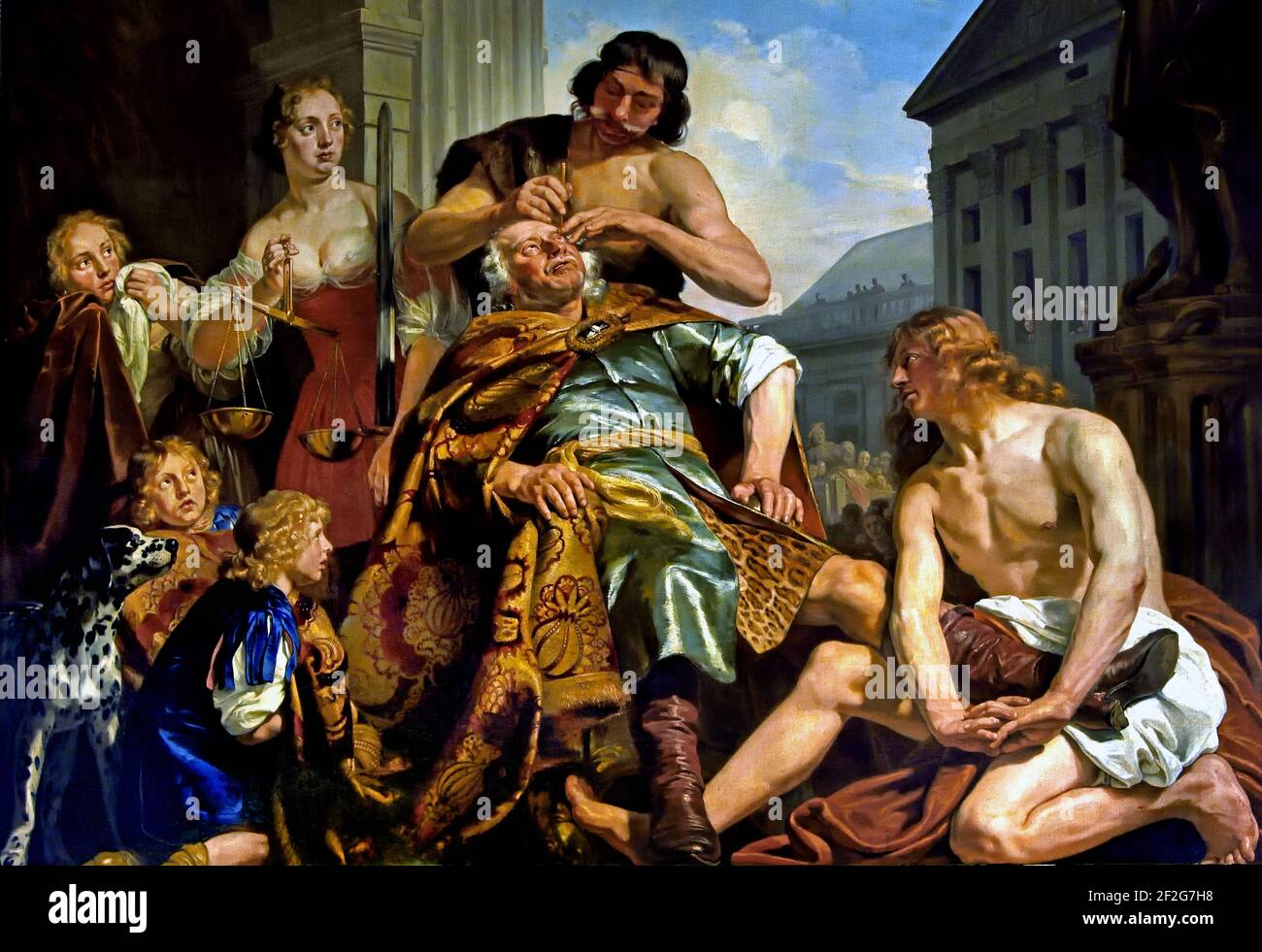Lycurgus: The Luminary Orator of Ancient Athens
In the pantheon of great figures of Classical Athens, Lycurgus stands out as one of the most eloquent and influential orators of his time. His legacy, rooted in the rich tapestry of Athenian political and cultural life, offers a glimpse into the complexities of a society that laid down the foundations for modern democratic ideals. Born into an era that cherished rhetorical skill, Lycurgus's leadership extended beyond words, encompassing extensive reforms and cultural patronage that left an indelible mark on Athens.
The Life and Times of Lycurgus
Lycurgus was born around 396 BC into a distinguished family, the Eteoboutadai, a lineage that claimed ancestry back to the mythical King Erechtheus of Athens. His upbringing and educational background in a city renowned for its philosophers and statesmen undoubtedly played an integral role in shaping his path as a leading public figure. The Athens of Lycurgus was a hub of intellectual vigor, struggling to maintain its identity and autonomy in the turbulent aftermath of the Peloponnesian War.
Despite the challenges of the era, including the looming threat of Macedonian dominance under Philip II and later Alexander the Great, Lycurgus emerged as a voice of persistence and resilience. His rise to prominence was marked by his election to the position of state treasurer, a role that placed him at the financial helm of Athens. Through this pivotal position, he wielded significant influence over public policy and civic projects.
Lycurgus's Contributions to Athenian Finances and Infrastructure
One of Lycurgus's most notable contributions to Athenian society was his management of the state treasury. Under his stewardship, the Athenian economy saw a remarkable resurgence. By implementing strict fiscal policies and embedding transparency in administrative practices, Lycurgus effectively revitalized Athens's finances. He was credited with tripling the state's revenue during his 12-year term, reflecting his adeptness in economic governance.
His financial acumen extended beyond mere numbers; Lycurgus leveraged the city's newfound wealth to undertake several monumental infrastructure projects. Among his accomplishments was the completion of the theater of Dionysus, an architectural marvel that reflected Athens's devotion to the arts and culture. This amphitheater not only became a cornerstone for theatrical performances but also stood as an emblem of civic pride and cultural identity.
Additionally, Lycurgus oversaw the fortification of the city's defenses, bolstering the fortifications of the harbors and enhancing the naval fleet. These efforts played a critical role in safeguarding Athens against external threats, ensuring the city-state's continued resilience and autonomy in an era of increasing Macedonian hegemony.
A Patron of the Arts and Cultural Rebirth
Lycurgus's tenure as a public servant was also marked by his deep commitment to the arts and education, nurturing what can be described as a cultural renaissance in Athens. His policies and patronage cultivated an environment where artistic and intellectual endeavors flourished. This period saw the commissioning of various artistic works, including public monuments and statues that celebrated not only contemporary figures but also immortalized historical and mythical heroes of Athens.
His dedication to cultural advancement was not limited to material contributions. Lycurgus played a crucial role in the standardization and preservation of Athenian literature, particularly the works of the great tragedians Aeschylus, Sophocles, and Euripides. By ensuring these literary masterpieces were meticulously copied and preserved, he safeguarded a legacy that would influence Western literature and drama for centuries.
The Legacy of Lycurgus
Beyond the tangible achievements attributed to Lycurgus, his true legacy may lie in his advocacy for justice and integrity within Athenian society. As an orator, his speeches conveyed a deep-seated commitment to democratic principles, urging fellow Athenians to uphold equality before the law and promoting the idea that civic duty transcends personal ambition. While only one of his speeches, "Against Leocrates," survives to this day, it serves as a testament to his profound understanding of moral and patriotic duties.
Through his visionary leadership, Lycurgus reinforced the cultural and political edifice of Athens. His lifetime was dedicated to fostering an environment where arts, education, and justice stood central to civic life, and his influence continued to echo long after his demise. For historians and enthusiasts of classical antiquity, Lycurgus embodies the virtues that characterize the pinnacle of Athenian society, a testament to the enduring power of eloquent and ethical leadership.
As we conclude the first part of our exploration into the life and contributions of Lycurgus, the stage is set to delve deeper into the interplay between his oratory prowess and the broader socio-political landscape of Athens, thereby unraveling the rich historical tapestry that defined his era.
Lycurgus and the Political Landscape of Athens
Lycurgus's legacy is inextricably linked to the vibrant yet fraught political scene of Athens during his lifetime. The latter half of the 4th century BC was a period marked by great uncertainty and significant geopolitical shifts, particularly due to the rise of Macedonian power under Philip II and, subsequently, Alexander the Great. In such turbulent times, the role of a well-articulated and principled political stance was crucial for Athens, which was struggling to maintain its autonomy and democratic institutions amidst external threats.
As a staunch patriot, Lycurgus was deeply invested in the political fabric of his city-state. He was a key member of the faction that favored resistance against Macedonian influence, a stance that often put him at odds with the more conciliatory voices in Athenian politics. His rhetoric was characterized by an impassioned appeal to tradition and democratic values, urging the citizens of Athens to uphold their ancestral laws and resist subjugation.
During his political career, Lycurgus allied with other prominent Athenian statesmen, such as Demosthenes, to forge a united front against the encroaching dominance of Macedonia. These alliances sought to galvanize the Athenian populace, drawing on the shared heritage of a city that prided itself on having served as the cradle of democracy.
Oratory as a Tool of Influence
In the arena of ancient politics, oratory was not merely a means of communication but a powerful tool for shaping public opinion and influencing policy. Lycurgus, with his formidable skills as an orator, leveraged his rhetorical prowess to inspire civic engagement and bolster public morale. His speeches, though primarily aimed at immediate issues facing Athens, often transcended the particulars of time and place, invoking broader themes of justice, courage, and communal responsibility.
Lycurgus's only surviving speech, "Against Leocrates," exemplifies his eloquence and mastery of rhetoric. Delivered in a court proceeding, the speech concerns Leocrates, an Athenian merchant accused of cowardice and desertion following a military defeat. Through this oration, Lycurgus articulated a vision of citizenship that was deeply entwined with loyalty to the polis. He argued that the abandonment of one's city in moments of crisis constituted a profound moral failing, resonating with a society that valued collective over individual interests.
The speech is emblematic of Lycurgus's ability to intertwine moral and legal arguments, appealing to both the emotions and rationality of his audience. His rhetoric skillfully wove historical references and mythological allusions into logical arguments, creating a compelling case that underscored the necessity of unwavering allegiance to Athens.
Religious and Societal Reforms
Beyond his contributions to the economic, cultural, and political arenas, Lycurgus's influence extended into the religious and social spheres of Athenian life. His interest in strengthening the moral fabric of society was reflected in several of his legislative initiatives that sought to moralize and enforce ethical behavior among the citizens of Athens.
Lycurgus played a significant role in revitalizing religious practices, reinforcing the connection between state governance and spiritual observances. He was instrumental in reestablishing various religious festivals, including the Panathenaic Festival, which celebrated the goddess Athena, patroness of the city. These festivals not only served as crucial religious observances but also fostered a sense of unity and shared identity among Athenians.
Similarly, Lycurgus advocated for public education and ethical upbringing, recognizing that the youth of Athens represented the future custodians of its democratic institutions. By promoting educational and moral standards, he aimed to cultivate a citizenry capable of upholding the values upon which Athens was built.
The Enduring Influence of Lycurgus
While the particulars of Lycurgus's reforms and policies provide insight into his time, they also illustrate a broader understanding of leadership as an enduring force for societal cohesion and resilience. His life's work reflected an intricate blend of pragmatic governance, cultural renaissance, and impassioned advocacy for justice and democracy.
In examining the historical impact of Lycurgus, it becomes evident that his influence extended well beyond the immediate effects of his policies and projects. By championing ideals that resonated with the collective consciousness of his contemporaries, Lycurgus ensured that the fundamental tenets of Athenian democracy and culture were preserved amidst the winds of change and legacy remained a beacon for subsequent generations.
As we traverse further into the rich narrative surrounding Lycurgus's life and times, the third part of our exploration will delve into his impact on future generations and the lasting legacy that his reforms left in the annals of Athenian history, continuing to inspire and inform democratic principles worldwide.
The Legacy of Lycurgus in Athenian Memory
As we navigate the enduring legacy of Lycurgus, it becomes increasingly clear how his multifaceted contributions shaped several aspects of Athenian life. Following his death, the collective memory of his statesmanship and reforms persisted as an integral part of Athens's rich historical tapestry. His influence was not confined to mere monuments or legislative records but was woven into the very ethos of Athenian identity.
Through his establishment of stringent financial control and encouragement of public accountability, Lycurgus set precedents that outlasted his lifetime, informing subsequent governance practices. Future statesmen would come to view his tenure as a benchmark for effective administration, especially in terms of balancing fiscal discipline with public welfare. The reforms he introduced to Athens's economic and cultural landscape illustrated the city's potential for renewal, even in periods overshadowed by external threats.
His impact on cultural preservation, particularly through the standardization of tragic plays, ensured that the works of Aeschylus, Sophocles, and Euripides transcended his time, providing a window into the soul of ancient Athens for generations to come. These works have not only served as educational and inspirational touchstones throughout Western history but have also preserved the spirit of inquiry and humanism that characterized Athenian society.
Lycurgus's Influence on Democratic Ideals
The principles upheld by Lycurgus, valorizing democratic processes and institutions, echoed far beyond his immediate sphere of influence. In a rapidly changing world, his commitment to safeguarding democracy against encroaching autocracies resonated deeply with later political philosophers and leaders advocating for similar ideals.
His emphasis on citizen participation and moral responsibility laid a foundation that modern democratic states continue to recognize and adapt. The insistence on the interdependence of freedom and responsibility within a democratic framework, as demonstrated in Lycurgus's speeches and policies, informs contemporary debates on civic duty and governance.
Moreover, Lycurgus's approach to political oratory as a vehicle for ethical discourse and societal guidance set a precedent for the role of rhetoric in democratic settings. The conscious blend of moral, legal, and historical appeals within his communications provided a blueprint for political engagement, nurturing a public that valued intellectual rigor and principled action.
A Timeless Beacon for Leadership and Governance
In examining the overarching narrative of Lycurgus's life, several insights emerge on the nature of leadership and its lasting significance. While the external circumstances Athenians faced differed vastly from those of contemporary society, the challenges of maintaining social coherence, promoting cultural flourishing, and encouraging active civic engagement remain timeless. Lycurgus's life offers valuable lessons on navigating such complexities with wisdom and integrity.
His ability to balance tradition with innovation, as seen in his cultural projects and institutional reforms, exemplifies adaptive leadership that harmonizes enduring values with the demands of changing times. This synthesis of continuity and creativity is essential for any governing body striving to remain relevant and dynamic amidst evolving societal contexts.
Furthermore, Lycurgus's invocation of history and myth as guiding narratives underscores the power of storytelling in fostering a shared sense of purpose and identity. Today, in a world often characterized by fragmentation, his example highlights the unifying potential of common heritage and collective memory, urging communities to draw strength from their past to envision a harmonious future.
Conclusion: The Enduring Resonance of Lycurgus
As we conclude our exploration of Lycurgus's contributions to ancient Athens, his story transcends the annals of history to inspire reflection on contemporary governance, culture, and morality. His vision of an engaged citizenry, robust democracy, and vibrant cultural life continues to inform how communities can strive to balance individual and collective aspirations.
Lycurgus stands as a testament to the enduring impact one dedicated individual can have in shaping a society's legacy. His multifaceted approach to leadership serves not only as an heirloom of Athenian ingenuity but also as a continuing source of inspiration for those seeking to navigate the complexities of political life with integrity and insight.
In honoring the memory of Lycurgus, we recognize the timeless journey of democratic ideals and cultural stewardship, encouraging present and future generations to draw upon the rich heritage of the past as they chart their course toward a just and enlightened society.














Comments